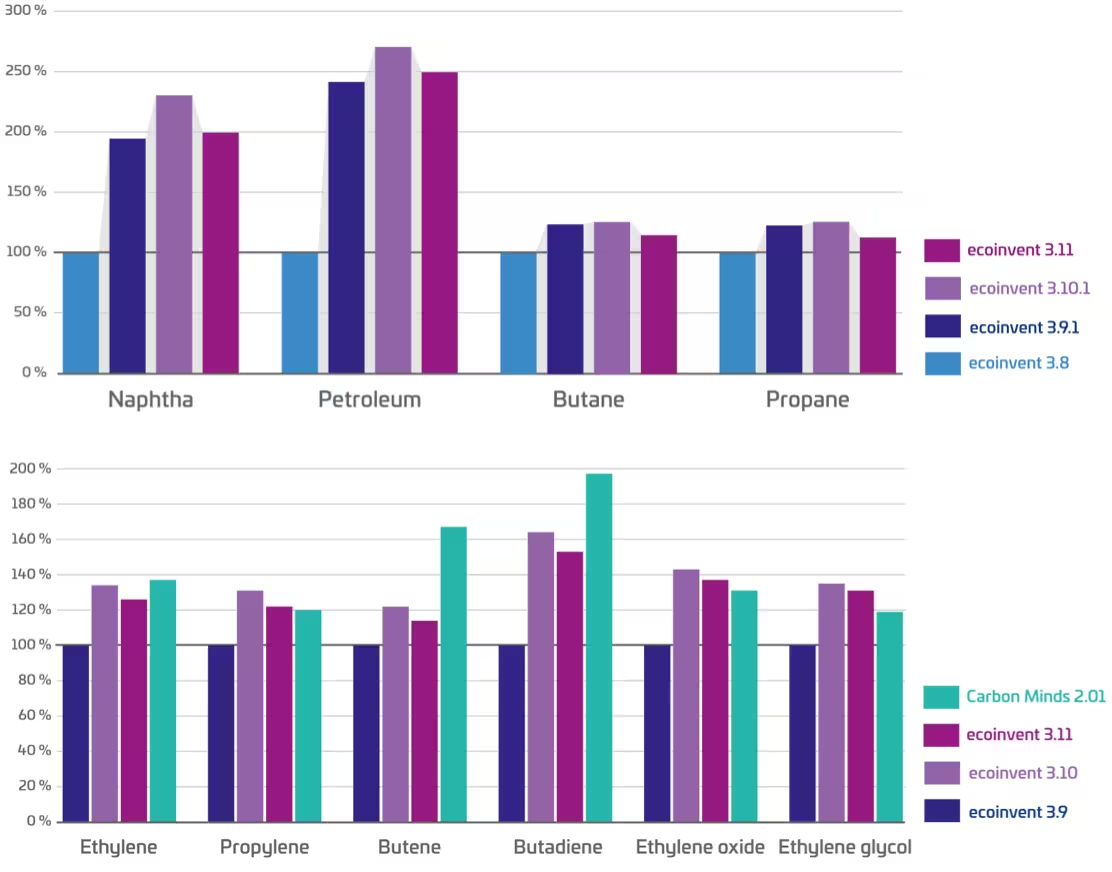Study: Methane emissions from oil & gas supply chains significantly underestimated
14 October 2025
A new study commissioned by the Germany-based Renewable Carbon Initiative (RCI) has analyzed recent updates to two comprehensive life cycle inventory (LCI) databases—including the Swiss Ecoinvent and the German Carbon Minds databases. The analysis shows that the recent LCI revisions reveal higher carbon footprints of several fossil-based feedstocks and products, exposing a major underestimation of methane emissions across crude oil and natural gas supply chains. The new findings were identified through enhanced satellite data on methane venting, flaring, and fugitive leaks.
The revisions reveal stark inconsistencies in emission reporting across industry sources like the International Energy Agency (IEA) or International Association of Oil & Gas Producers (IOGP)—the study found. For example, global methane emissions from oil production are now reported to be 15 times higher in IEA data compared to IOGP figures, with discrepancies for Russia reaching 10-fold and for Saudi Arabia 40-fold. Similar gaps exist for natural gas production, where World Bank data show emissions up to 3.8 times higher than IOGP estimates in key producing countries.
These data revisions mean that the carbon footprint of key fossil-based feedstocks and downstream products, as tracked in such LCI databases, has risen sharply over the past years, Figure 1. As a result, major petrochemical products have seen marked carbon footprint increases.

(Source: Renewable Carbon Initiative)
For example, the footprint of naphtha—the most common olefin feedstock—almost doubled, ethylene and propylene footprints increased by roughly 30%, and the butadiene footprint increased by 60-90% compared to previous LCA data. Plastics derived from these feedstocks, including polyethylene (PE), polypropylene (PP), and polyethylene terephthalate (PET), now carry 20–30% higher carbon footprints.
The report urges policymakers to rapidly integrate the updated LCI data into consideration for climate strategies and when assessing fossil-based products to renewable alternatives.
Source: Renewable Carbon News